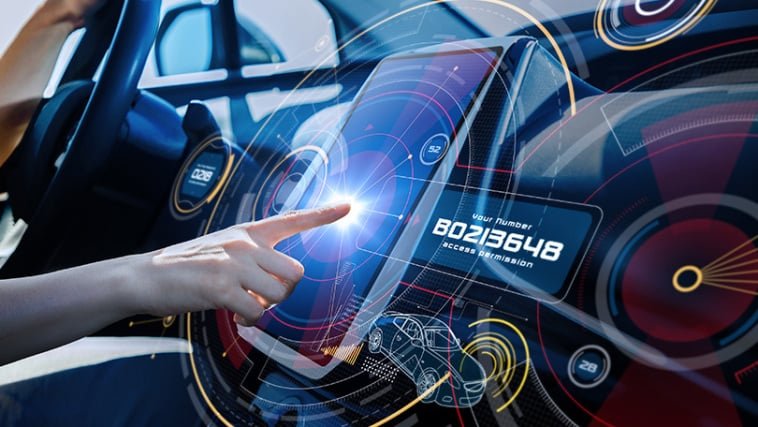Global Automotive Supply Chain Disruptions: Navigating the Roadblocks
Global automotive supply chain disruptions have adversely affected the efficiency and reliability of auto parts production, leading to delays and higher costs. These disruptions have been caused by factors such as natural disasters, trade disputes, and the COVID-19 pandemic. The automotive industry heavily relies on a complex network of suppliers and manufacturers around the world. When any part of this chain is disrupted, it can lead to significant challenges in meeting production demands. Natural disasters such as earthquakes, tsunamis, or hurricanes can damage manufacturing facilities, causing temporary or long-term shutdowns. Trade disputes, like the tariffs imposed on steel and aluminum, have disrupted the flow of raw materials and increased costs for manufacturers. Moreover, the COVID-19 pandemic has resulted in factory shutdowns, labor shortages, and logistic challenges, leading to further disruptions. We will explore the various factors contributing to global automotive supply chain disruptions and their impact on the industry. We will also discuss potential solutions and strategies that automotive manufacturers can adopt to mitigate these challenges and ensure the smooth functioning of their supply chains. Understanding The Factors Leading To Supply Chain Disruptions Supply chain disruptions in the global automotive industry can have far-reaching consequences, affecting not only manufacturers but also consumers. Understanding the factors that contribute to these disruptions is crucial for businesses to navigate the challenges posed by an interconnected and dynamic marketplace. From shortages of raw materials to technological advancements, multiple factors can disrupt the smooth flow of the automotive supply chain. Shortage Of Raw Materials A shortage of raw materials is one of the primary factors leading to supply chain disruptions in the automotive industry. The production of vehicles involves a complex network of suppliers that provide various components and materials required for assembly. When there is a shortage or disruption in the availability of these raw materials, it can significantly impact the production process and cause delays. Natural Disasters And Geopolitical Conflicts Natural disasters and geopolitical conflicts have a direct impact on the global automotive supply chain. Disruptions caused by events such as earthquakes, hurricanes, or political tensions can lead to the closure of manufacturing facilities, transportation disruptions, and overall instability in the supply chain. Companies often have to find alternative sourcing options or temporarily halt production until normalcy is restored. Trade Policy Changes Trade policy changes, such as tariffs or trade disputes between countries, can create uncertainties and disruptions in the automotive supply chain. These changes can affect import/export regulations, resulting in delays in the transportation of vehicles and components, as well as changes in pricing and cost structures. Manufacturers must closely monitor and adapt to these policy shifts to minimize the impact on their supply chains. Technological Advancements Technological advancements can both improve and disrupt the automotive supply chain. On one hand, innovations in automation and digitization can enhance efficiency and streamline processes. On the other hand, the rapid pace of technological change can create challenges for manufacturers who may struggle to keep up with the evolving industry trends. Companies that fail to adopt technologies or adapt to new market demands risk disruptions within their supply chains. Credit: gravyanalytics.com Analyzing The Consequences Of Automotive Supply Chain Disruptions Global automotive supply chain disruptions have significant consequences that need careful analysis. These disruptions can lead to delays in production, increased costs, and reduced customer satisfaction. Understanding the impact of these disruptions is crucial for automotive manufacturers and suppliers. Production Delays And Increased Costs Automotive supply chain disruptions can have severe consequences for production processes and cost structures. When supply chains are interrupted due to factors such as natural disasters, trade disputes, or pandemics, automakers face significant delays in receiving the necessary components and materials. These delays can lead to a domino effect, causing delays in the overall production process and ultimately resulting in fewer vehicles being manufactured and delivered to the market. Furthermore, these disruptions often result in increased costs for automakers. The shortage of key components and materials can drive up prices, making it more expensive for manufacturers to produce vehicles. This not only affects their bottom line but also puts pressure on them to find alternative suppliers or adjust their production strategies. As a result, automakers may be forced to pass on these increased costs to consumers, leading to higher vehicle prices and potentially impacting customer demand. Reduced Market Share And Customer Satisfaction Supply chain disruptions in the automotive industry can also have a profound impact on market share and customer satisfaction. When automakers experience production delays or are unable to meet customer demand, consumers may turn to competitors who can fulfill their needs in a timely manner. This can result in a loss of market share for the affected automaker. Moreover, customer satisfaction can be significantly affected when vehicles are not delivered on time or when there are quality issues due to supply chain disruptions. Customers expect a seamless purchasing and ownership experience, and any disruptions in the supply chain can lead to frustration and dissatisfaction. This can not only impact brand loyalty but also result in negative word-of-mouth, which can further erode market share and customer trust. Impact On Overall Industry Performance The consequences of automotive supply chain disruptions are not limited to individual automakers but can also have a wider impact on the overall industry performance. When major players in the automotive industry face disruptions, it can cause ripple effects throughout the supply chain, affecting suppliers, dealers, and other businesses reliant on the sector. For instance, when automakers reduce their production volumes due to supply chain disruptions, it can lead to decreased orders from suppliers, thereby impacting their revenue and viability. Similarly, dealerships may experience lower sales volumes and reduced profitability if the vehicles they rely on are not readily available. Overall, these disruptions can result in a slowdown in the entire automotive industry, affecting economic growth, employment, and investment. It highlights the interconnectedness of the different stakeholders in the supply chain and the need for resilience and proactive measures to mitigate the impact of disruptions. Supply Chain Vulnerabilities
Global Automotive Supply Chain Disruptions: Navigating the Roadblocks Read More »



